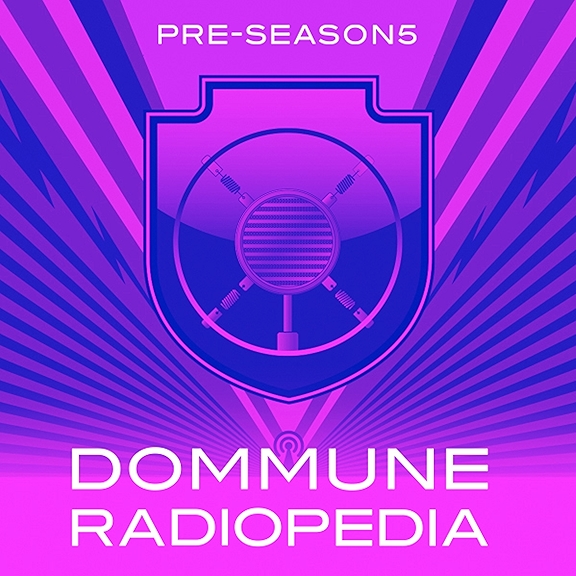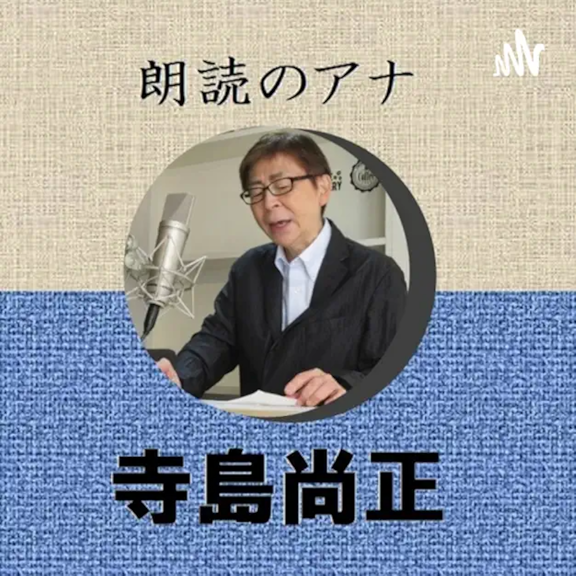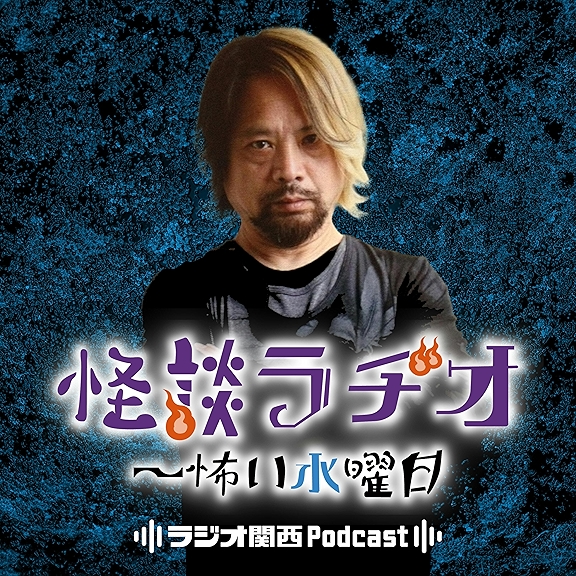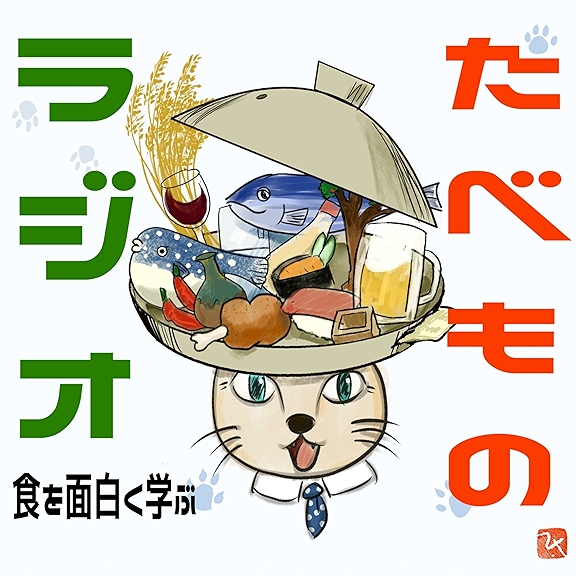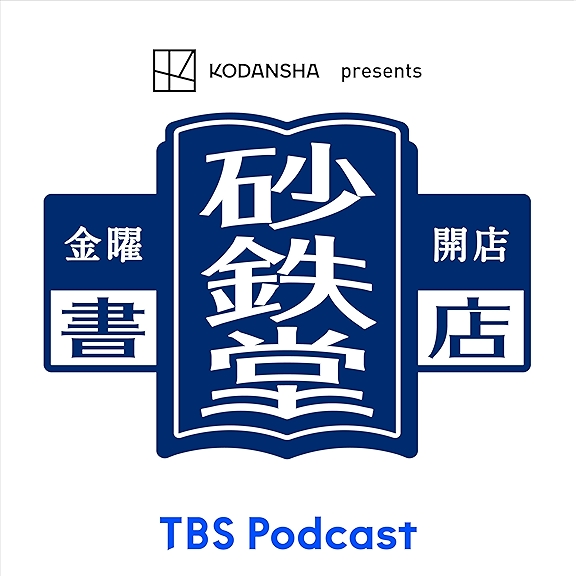
We Make Books is hosted by Rekka Jay and Kaelyn Considine; Rekka is a published author and Kaelyn is an editor and together they are going to take you through what goes into getting a book out of your head, on to paper, in to the hands of a publisher, and finally on to book store shelves.
We Make Books is a podcast for writers and publishers, by writers and publishers and we want to hear from our listeners! Send us your questions, comments, and concerns!
We hope you enjoy We Make Books!
Twitter: @WMBCast | @KindofKaelyn | @BittyBittyZap
Transcript:
Kaelyn (00:00): Hi, everyone. Welcome back to another episode of We Make Books, a show about writing publishing and everything in between. I'm Kaelyn Considine. I am the acquisitions editor for Parvus Press.
Rekka (00:09): And I'm Rekka. I write science fiction and fantasy as R J Theodore.
Kaelyn (00:13): Would you call that your title?
Rekka (00:14): No. It's a name.
Kaelyn (00:15): Oh, okay.
Rekka (00:19): But you can name a book by giving it a title.
Kaelyn (00:21): Mine's a title.
Rekka (00:22): Well, yes. You, you provided a title. I did not say, "I am Rekka, author."
Kaelyn (00:27): Yes. That would be your title. So, um, well today we're talking about titles, uh, books. They need them.
Rekka (00:33): Better titles than just a job description.
Kaelyn (00:37): Yes, than just that. Um, you know, this is how people are going to find your book. A weird thing is if you don't give a book a name and you just kind of like put it on a shelf, it makes it really hard for people to find, be that shelf physical or digital.
Rekka (00:49): Yeah. You definitely need it. You need something that somebody can find your book by. So how about a title and then how do you pick it? How long should it be?
Kaelyn (00:57): Yeah. Titles seem like one of those things that are very easy and in some cases they are, but when they are not easy, they are very difficult.
Rekka (01:07): And sometimes you can just get like a total mental block about like what you call your book, even though you've spent years, potentially, with this book and you know, every word because you've written it three times over, you know, like sometimes it's just really hard to say, like, "how do I encapsulate the experience of reading this book in a few words, that's somebody who's going to understand who hasn't already read the book?"
Kaelyn (01:30): Exactly. Yeah. So, um, you know, we talk a lot about things that titles should do, how they should serve the book and how they're being used to market your book and make sure it finds its way into the hands of the reader that's most going to enjoy it. As always, we hope you enjoy and we'll see you on the other side of the music.
Kaelyn (02:01): Oh yeah. Well the rogue star just keeps going. You're not orbiting the rogue star.
Rekka (02:05): No, no, no, no. I know, but it pulls you off your orbit and then you're moving. And if you are on a planet without propulsion, you are at the whim of that. I'm talking about generational ships where like there's some agency in which direction you're headed.
Kaelyn (02:19): Well, like I wonder if we hit Jupiter, like we approach Jupiter at the right angle, if we could end up just coming into orbit around Jupiter. Not that that would be especially good. But anyway, so Rekka, what would you call this book?
Rekka (02:38): Um, well, let's see. It sounds like it's science fiction, so it should probably be... Galaxy's Orphan.
Kaelyn (02:47): Oh, that's a good one. Thanks. Could you just come up with that off the top of your head?
Rekka (02:51): Well, based on our conversation, but yeah, I'm pretty good at titles. I have been told that I'm pretty good at titles.
Kaelyn (02:56): You are, you are very good at titles. I have personal experience with that. Today we're talking about titles and books and like how you wrote all of this thing and now you've got to call it something. Yeah. Titles are incredibly important because if no other reason it's how people find your book.
Rekka (03:11): Right. And it's, um, it's gotta be memorable. Like that is just, you know, I can't tell you how many times I've had to go find a post that somebody posted so I can remember the name of the title of the book that they were raving about, because the title of the book just is not sticking with me.
Kaelyn (03:30): Yeah. So, well, let's talk about that real quick, because we're going to, we're going to go through a few things here about, you know, what your title should do, but, you know, in terms of one-word bullet points, what your title should be so memorable. Certainly. Um, and I said one word bullet points, but it's actually.
Rekka (03:48): She immediately lied,
Kaelyn (03:49): But I lied. Um, easy to say and pronounce. Um, this is, you know, if this is a book written in English, try to keep the words to English as much as you can. I understand that, in fantasy and science fiction, sometimes you're going to want to throw the name of like a, you know, a fictional place or object or something in there, but we will, we will get to that and how you should do that and when that's appropriate. Um, but you know, if that name is or place is like 32 letters long that shouldn't be in your title. Come up with a different title.
Rekka (04:23): Yeah. And you know, if somebody is spreading the news of your book by mouth, you want it to be translatable to when that person goes and searches for the book, by typing it into the keyboard. Like they know how to spell the word that they heard. Even if the word they heard wasn't, uh, daunting. When you sit down to type it suddenly you're stuck.
Kaelyn (04:46): Um, so your title should also indicate to the potential reader, what kind of a book? This is, um, there's two ways to do that. Genre and tone. So genre, you know, we'll get a little more into that later in this, but not every book is going to immediately establish the genre by the title. But if that's something that's important to you, that's certainly a factor to take in consideration. And it should also kind of set the tone of the book. Um, if this is, you know, sort of like a dark fantasy or like a horror, you know, novel, the title should reflect that,
Rekka (05:23): Not include the word "bubbles," maybe.
Kaelyn (05:25): Yeah. Very little mention of unicorns and luck dragons and things like that. Regular dragons, fine, but you know, not luck dragons. Um, and the last thing that is very, very important and has to, where you combine all these together is, this needs to be unique because your book needs to be easily searchable. This is not always possible. I, I can't tell you how many books there are that have the same or similar titles out there or rearrangements of the same words.
Rekka (06:00): Yup. There's a children's book called Flotsam that, uh, comes up, uh—for a while there we were going back and forth in the number one search position for the word on Amazon. And you know, it's a children's book. So if say my mom, you know, tells a friend about my book, they might buy the children's book because it's not like my mom was a science fiction reader who was recommending to another science fiction enthusiast, a book. This was, you know, mom telling a friend that their child wrote a book. You know? So, um, if, if there's any doubt in the person's mind, they're probably going to go for the first search result. And if that's not you, then your title not being unique, did not do you any favors. But there's also just the combination of words. If you have your title is, um, one or two words, but it fits into someone else's title that's three or four words, then you're going to be, you know, getting tangled up with their search results as well.
Kaelyn (06:57): This is for instance, not a good time to put out a book called Wintery Winds. If you put that into Google, it's immediately going to ask you, "did you mean The Winds of Winter?"
Rekka (07:12): And you might go, "Oh, maybe, I don't know. Someone said it on a bus one time."
Kaelyn (07:15): "I don't know like, this book, Wintery Winds, I heard it was really good." Being aware of how easy it is to find your book. And now part of this also will depend on your name. Um, if your name is John Smith, first of all, you may want to come up with a pen name for writing, but if you're like, "no, my name's John Smith and I'm going to be John Smith, the author." Okay. You need to make sure your books have really unique titles. So along those lines, you know, you're picking a title. How do you start doing this? This is a really daunting prospect. And I should pause and say, you're picking a title and "you," the author here.
Rekka (07:55): And that does not mean that this is the title you are going to print with.
Kaelyn (07:59): I can't tell you how many submissions I've gotten that had titles that I did not think were accurate representations of the book. And you know, it didn't matter because, you know, we, we just read these and then nothing really came of them. Um, but there's nothing wrong with submitting an untitled manuscript or just giving it, you know, a name and indicating that this is a place holder because you needed something to call it.
Rekka (08:27): Although, I would say that any agent or publisher is going to know that your title is a placeholder, because they know that titles change. But if you can exhibit that, you know how good titles work then that might actually be an advantage.
Kaelyn (08:48): Agreed. One thing I will tell you that, you know, if you're kind, if it's a place holder or if it's just sort of a generic sounding title, um, that won't make a great impression, it'll make a neutral impression. A bad title will make a bad impression.
Rekka (09:05): Yeah. And that's something you can get feedback on from beta readers. And, you know, other writers that you know, is like, "Hey, here's my title. Here's my—" you know, you might give, uh, your, your pitch or your synopsis or something like that. "Like, does this feel like it's the right title to, you know, any thoughts?" Um, but here's the thing, someone who hasn't read it is not going to know the details. And if you, like, I do, um, tend to pull like story elements or something like that to create a title that resonates with the book on multiple levels. Then, um, you know, somebody who hasn't read the book, isn't really going to be able to tell you whether, you know, like workshopping that title just on the surface level.
Kaelyn (09:52): Yeah. Rekka's titles have layers. But yeah. So a publisher and agent might say, "Hey, this is a great book. We're really happy. It's done. We're going to call it something else now." Um, this is, you know, like what you envisioned your cover, looking like. Um, the end of the day, well, titles, titles a little bit different, you know, that's a series of words versus a large commissioning of a, of an artistic endeavor.
Rekka (10:17): Well, at the same time, it's as important to sales as the cover.
Kaelyn (10:21): Exactly.
Rekka (10:21): And so you might get as much, or maybe even more pushback from the publisher. If you come to a disagreement about what the title should be. I mean, I think the most important thing to consider when you are trying to pick your title is that the idea is you are trying to reach the reader who is going to love this book and leave it a five-star review. Like that's who you're targeting, right?
Kaelyn (10:47): Yes, definitely. Um, we're going to talk about like some tropes and things with, uh, naming titles. And there's a reason they're effective though. It's because that signals to the reader, "Ah, yes, this is something I like."
Rekka (10:59): "I am familiar with this format."
Kaelyn (11:01): "And also it's telling me something here that I know how to interpret correctly." There's a lot of code in titles. That it's sort of a little inside joke that readers will will know. "Ah yes, this is, this is meant for me to understand, because I like science fiction and therefore I get what's happening here."
Rekka (11:17): And that's not the thought process going through their mind, the thought process going through their mind is much more subliminal. I think in that, like when you have, you know, "The X of X and X," that is a comfortable pattern that that reader goes, "Ooh, that one."
Kaelyn (11:32): People really like patterns.
Rekka (11:34): Yeah. And they gravitate towards familiar patterns.
Kaelyn (11:37): Yeah, exactly. So the, the marketing with the title doesn't come so much from the, you know, the actual title itself, it comes from where it's resonating with the readers who are going to like it. Now it's funny because I've had many instances where I've had to tell people the title of a book that like, maybe as a genre, they read a lot. I'm talking mostly about my parents here, you know, say like, "Hey, you know, I know you don't read a lot of science fiction or you read a lot of fantasy, but you might really like this book." And then they're like, "Oh, cool. What's it called?" And I'll have to be like, "The guardians of blah-blah-blah" and have to tell them a title that I'm realizing like, "Oh, somebody doesn't like, that is really not going to appeal to them." Or in some cases it's a very simple, straightforward title and I can trick people into reading.
Rekka (12:27): Okay. But here's the thing. Do we want to trick readers into reading a book that they might not like?
Kaelyn (12:33): Well, that's the only time I trick readers into that is a, when I think it's something they'd like, and they just need to give it a chance.
Rekka (12:40): So you manipulate them.
Kaelyn (12:42): No, no. I, um, I do things with their emotions to produce an outcome that I find beneficial to me.
Rekka (12:47): Right. Okay. Definitely not manipulation. But, um, but this does bring up the point, like the title is trying to find a reader. It is not necessarily trying to encapsulate the entire story in one phrase. Yeah, exactly. And so you, as an author might feel like "I need to capture my story perfectly and wrap it up in a bow." Whereas your publishers like, "Um, we want, uh, this demographic and people who like this book to pick up this book. And so we care that the title appeals to them for those reasons, not that they're able to immediately connect with your main character before they've even opened the cover."
Kaelyn (13:27): Yep. So publishers agents, marketing strategists, they're trying to come up with a title that hits all of those things that we mentioned before, but then also appeals directly to the demographic that you are trying to hit. Um, something that is, you know, a fantasy novel, the title shouldn't be, you know, about like a peanut butter sandwich, unless, you know, it's called "The Magic Peanut Butter Sandwich."
Rekka (13:58): Yeah. I mean, it really depends on the tone of your book, but like, think about the silliest, um, fantasy book that you can and, you know, like I go immediately to like the Discworld series. Those titles still had that air of propriety about them. And you just kind of knew, from the series, what you were getting into, if that makes sense.
Kaelyn (14:25): Yeah, absolutely. The marketing department with your publisher, what they're going to be doing for a title is, you know, apart from everything that I mentioned before, hitting those marks—it's easy to remember and pronounce, um, it's setting the tone, it's intriguing people. Um, it's easily searchable—they're also going to be aware of things in that particular genre and the demographic that you're targeting that might appeal to people. There are certain, I don't want to call them naming conventions. It's not that, but there are certain tropes, if you will, that you find across a lot of genres and what the signals to people when they're browsing for books and stuff is, you know, they may just have a long list of them and see something and go like, "Oh, hang on. That sounds like a, YA book that sounds like a science fiction book. That sounds like a romance book." Based on the title.
Kaelyn (15:17): So that could also be something that is a factor in what your publisher is looking for in a title for your book. So how do you get a good title for a book? What kind of elements in the book are you pulling forward to put into your title? This is hard because, you know, cover art's one thing. That's a picture. You can do a lot with a picture. Um, you know, we were joking in the cover art episode about how like your entire book is limited to this one picture, but like, you can do a lot in that one picture or that design, whatever you're doing for the cover. Um, the title's the title. You can't, you know, it's a, it's a statement of fact in a way, so you're, you're staring down the barrel of this going "well, there's so many important things here that I want the reader to know about this book" and you're writing them all down and then suddenly there's no cover art anymore. It's just a long series of words that you realize you've basically written the summary and now it's on the front and very nice typeset.
Rekka (16:15): Although, if this is YA, that is a new style for the covers. So that might work out very well. Like The Invisible Life Of Addie LaRue by V.E. Schwab. Um, that one, the cover is pretty much just a little bit of flourish on the text. I can look behind me and find three or four other, uh, you know, YA titles where that's now the norm.
Kaelyn (16:38): Very trending in YA right now. But while doing this, I refer you back to that same list I gave you and take that and apply it to your book. What was really memorable about this book? What are some things in there that you think set the tone, or what IS the tone? Is the tone part of the theme of the book? Is that important? You don't have to have just nouns. These could be verbs, feelings, like maybe some Egyptian hieroglyphics. I don't know. No, don't do that because it violates "easily searchable."
Rekka (17:11): Yes. It definitely does.
Kaelyn (17:12): And "easy to pronounce."
Rekka (17:13): Right? Yeah. You, um, you eliminate part of your audience.
Kaelyn (17:17): A good way to do this is go back to, if you wrote an outline, go back to the outline, identify, you know, you know, do you wanna focus on the main character? Do you want to focus on a place? Um, is there a particular magical element or a lost relic or something that you'd like to call attention to, to say, "Hey, this story is about this." Do you want to intrigue the reader by, you know, using the name of something that you've created in your world, that it's going to make them wonder, "Ooh, what is that?" Um, there's, you know, identify some themes in your book. What was this book about? Is it a hero's journey? Is it a coming of age? Is it a romance? And make sure that your title hints towards some elements of that as well. Now, if you're saying, "Oh my God, how do I get all of this into two to five words?" You're right. This is hard.
Rekka (18:16): I think if you just sort of open your mind to the question as you're working on your drafts and revisions. At some point you start to get like, "Oh, that would be an interesting title..." And you just jot it down while you're working and keep going and just sort of generate a list of things that could potentially be, um, you know, a title or a series name. And we should get into that too.
Kaelyn (18:39): Rekka, what's the craziest thing you've ever done. Trying to come up with a title. Well, you're good at titles you usually have—.
Rekka (18:44): Yeah I don't usually do back flips or anything.
Kaelyn (18:47): You usually have them when you're, when you're working. I can tell you the craziest thing I did was I took the entire manuscript and dumped it into a word counter and it spit out—
Rekka (18:58): Oh like a cloud generator?
Kaelyn (18:59): Yeah. It spit out a report for me on the number of times a certain word was used.
Rekka (19:05): And your book was titled "The."
Kaelyn (19:06): I think it was "He," actually.
Rekka (19:12): Yeah. "He The." That's what I was going to say. The pronoun of the main character, if it's third person, and then "the."
Kaelyn (19:17): "He The A," I think was the title of the book. Um, but yeah, basically like I did a word cloud and you know, was just trying to come up with, um, you know, things to identify from that. And what's funny is, you know, that's not even how we eventually came to the title, but, um, yeah, I got very, very stuck on a book once I was helping someone with trying to come up with a title in there. And it was like a point of like, "I am going to find a way to do this!"
Rekka (19:46): "I am going to find the perfect title and everyone will say, 'yes, Kaelyn, that is the perfect title!' and then I will be happy!"
Kaelyn (19:52): "That is the perfect title. I know what this book is and I want to read it now."
Rekka (19:55): That's what happens if somebody asks me for help with the title, I'm like, I do not give up until I am the one who has come up with the title.
Kaelyn (20:03): It is not easy to encapsulate your entire book in a few short words, but that is what you're trying to do.
Rekka (20:10): Which is funny because I find it easier to come up with a book title that is one word than I do for a book title that is a few words.
Kaelyn (20:20): Um, I I've been on both sides. Um, sometimes I like the short and sweet: Flotsam. Salvage. You know, um, sometimes I like the longer ones and we'll get a little bit more into those and you know why they're getting trendy right now as we progress here. But there's so many things that you've got to consider when trying to come up with a title and put all of this together.
Rekka (20:46): And some of it like, um, the meter of saying it out loud, too. Like if you haven't said your title out loud while you're brainstorming it, like, um, the example I gave earlier, "The Invisible Life of Addie LaRue" feels like balanced phrase, even though the word invisible is much longer than any of the other words in the title. Um, and then one thing I would point out is that like, if you're going to have titling and you have a very, very long word and a very, very short word, you are going to, uh, cause your typographer a little bit of a headache to try and balance that on your, on your cover.
Kaelyn (21:23): Personal experience, Rekka?
Rekka (21:23): I don't know what you're talking about. Um, but, uh, yeah, like consider how it sounds, how it feels in the mouth. I mean, like that adds to the memorability—the point we were talking about earlier—if it feels like the first line of a poem, especially with the longer ones, it's going to be more memorable. If it feels like a phrase that belongs locked-in the way it's written, that's, I think, that gets you somewhere.
Kaelyn (21:52): It needs to roll off your tongue.
Rekka (21:54): Or pop around in your mouth. You know? Like it needs to feel good to say.
Kaelyn (21:59): We don't like to acknowledge this in the English language, but there are combinations of words that are incredibly awkward and clunky and you can try to finesse them as much as you want, but sometimes it's just not going to happen. Awkward and clunky is not a good look for your book, title,
Rekka (22:14): The Serpentine Donut.
Kaelyn (22:16): I want a donut.
Rekka (22:16): But it's made of snakes. Kaelyn, you will be biting into a snake. Do you still want the serpentine donut?
Kaelyn (22:24): Uh, no. Cause I like snakes, so I don't want to bite them.
Rekka (22:27): "Serpentine Donut" versus, um, "Hissing Beignet." The Hissing Beignet might be full of cockroaches. It's hard to say.
Kaelyn (22:39): Oh, I'll take the donut, then. Definitely.
Rekka (22:41): But you know, like different ways to phrase things, you know, like Alligator Pastry, there are different ways to phrase the thing that feel very different when... You know, like when you're going through your list, get your thesaurus out, you know, like play around with it. Find that rhythm, find that phrase that like just feels like it clicks. Or word. Single word.
Kaelyn (23:07): Or a single word. Flotsam. Although don't use Flotsam. That's taken.
Rekka (23:10): Don't use Flotsam, please. I already have competition.
New Speaker (23:14): From a children's book. Children should not read your book.
Rekka (23:19): Hey, now! I mean you're right, but still.
Kaelyn (23:24): I'm going to take us on a little bit of a divergence here because I was just, I swear.
Rekka (23:30): She gives me notes, and then she just goes right off onto a different page that I didn't get a scan of.
Kaelyn (23:34): Well, it's so funny because I was thinking about, you know, titles I come across. Like obviously I've got like a massive bookshelf full of, you know, stuff. And I was looking at everything and like coming up with these like tropes. I'm going to, these are not official tropes, but I feel like—
Rekka (23:52): But they kind of are.
Kaelyn (23:53): They kind of are. Um, so, you know, like if you're writing a YA book, like a very common title for YA books right now is "A Something (or The Something) of Something and Something." So like A Court of Thorns and Roses. A Daughter of Smoke and Bone. You know, there's—.
Rekka (24:10): Gods of Jade and Shadow.
Kaelyn (24:12): There you go.
Rekka (24:13): Which actually was not YA I don't believe, but...
Kaelyn (24:15): YA and Fantasy, a little bit, sometimes, I feel like there's a little, little crossover there.
Rekka (24:23): Yup. But, um, fantasy, I mean, you nailed it. It's "The Noun of Noun" or —
Kaelyn (24:29): You did get these notes. Fantasy, I wrote down, it's "The Noun of the Noun of Noun" or "The Noun of Noun." And usually it's "The [Object] of either [Place] or [Title] or [Title of Place]," you know, [Title of Place].
Rekka (24:47): Yeah. "Storm of Locusts," you know, "Trail of Lightning."
Kaelyn (24:50): Yeah, exactly. Um, and then it was funny, cause the other one I came up with was Science Fiction. Although Rekka pointed out that Science Fiction does definitely tend to have some single word titles, but the other one was like a "[Possessive Noun]" and "[A Group or An Object]."
Rekka (25:05): When we said, what would we name this story, that was the formula it was using? So, you know, like Sun's Orphan, or whatever I said.
Kaelyn (25:12): Yeah. Um, I'm going to go ahead and say it: Vick's Vultures.
Rekka (25:15): To Fall Among Vultures was the second book and Where Vultures Dare was the third. That goes to another point that you're going to bring up:
Kaelyn (25:23): Naming a series.
Rekka (25:23): Naming a series, and naming the books in a series.
Kaelyn (25:27): Rekka, you have a series.
Rekka (25:28): I do.
Kaelyn (25:29): Is there a theme to the titles of your books?
Rekka (25:31): The titles of the books, all sort of refer to my main characters, the crew of the ship, being underdogs. Um, and it also refers to elements of the story. So Flotsam: there is a I'll call it geographical location in the story in the, in the world called flotsam. And it's a layer of trash that is caught in a gravity well, and so my characters are being referred to in my title as you know, disposable, um, trash, you know, the stuff that polite society doesn't want. And, um, it's one word it's, um, two syllables. So that when I went to name book two, um, I immediately rejected Colin's suggestion to call it "jetsam" because that wasn't the point. Um, and I ended up calling it Salvage because what they do in this flotsam layer is, you know, take their equipment and go salvage things that might be of value. And so, um, in that book, that crew is still garbage, but are trying to salvage things, you know, um, the world, uh, that kind of fell apart in the first book. They're trying to salvage it. And um, so the third book, I break with the one word, but I keep the two syllables and even keep the letter count because so far all the titles have seven letters in it. Um, so it's, it's uh, Flotsam and Salvage, then the third book will be called Cast Off. And in that I'm referring to, um, things that are cast off, you know, more garbage, but also they are going to start life on a new ship and, you know, cast off. I always go for like a double meaning. I always like to, uh, keep the title simple. I like when the titles feel like they match each other. Um, and I'm very proud that I managed to avoid the word jetsam.
Kaelyn (27:51): I'm proud of you too. It's not a bad idea, once you've officially named the first book to then kind of start thinking about that naming convention you came up with for it. Um, I think one of the most cleverly named series, if anybody's read, uh, An Ember in the Ashes series. The name is very interesting. You know exactly what it is. There's still a, there's this big pile of destruction and there's a little spark underneath of it. Um, the next book is called A Torch Against The Night. So what's happening now? Well the fire is a torch now, and it's going out into this darkness and everything, then the next book is A Reaper At The Gates. Rekka, what does that say to you?
Rekka (28:39): Things aren't going well.
Kaelyn (28:40): Yeah, things aren't going great. And then the final book, which just came out very recently, is called A Sky Beyond The Storm. So again, Rekka, what does that say to you?
Rekka (28:52): Kind of a bit of hope coming back.
Kaelyn (28:55): A little bit of hope, there. Yeah.
Rekka (28:56): Blue sky at the other edge of very dark situation.
Kaelyn (29:00): You know, I think that's a example of a great way, you know, to name, name your books, while also keeping in mind to tone. You know, that what we're doing here is we're kind of giving the expectations to the reader. Like I remember when the third book, when they announced the title of it and it was like, there it's A Reaper At The Gates.
Rekka (29:19): All the fans kinda go [gasp].
Kaelyn (29:22): This is going to get ugly.
Rekka (29:26): Um, I'm of course ruining my podcasting, uh, professionalism by constantly turning around and looking at the books on my shelf for this one. Um, but, uh, I'm thinking of, uh, K A Doore's, uh, it starts with the, The Perfect Assassin and then The Impossible Contract. So you have, you know, "The [adjective] [noun]," and then you have words that tie into that profession of, you know, being a contract killer. The Unconquered City is the third book. So that definitely like builds out this, this concept of scale, um, as you go to the third book. And, and of course the series itself is called The Chronicles of Ghadid. So this is, um, here's your fantasy, "The [noun] of [place]," you know, kind of thing that you're, uh, you were talking about before.
Kaelyn (30:23): If you're going to have a series, you are probably going to have to come up with a name for the series of, if you don't people reading the book will do it for you. And you might not like it. I don't know if they actually have this on any of the covers, there's so many versions of this book, but you know, uh, "A Game of Thrones "is book one of "The Song of Ice and Fire." Um, George R.R. Martin had been around the block a few times at that point. So he just named the series before all of this got started.
Rekka (30:51): Yeah. I'm, I'm honestly like really surprised at myself for how much I dislike puns that I, uh, I named my book series The Peridot Shift. Like that's just a straight up dad joke. And I am very like amused that apparently I like puns more than I realized. And also like devastated that I did this to myself and it's in print.
Kaelyn (31:13): It's fine. We're okay with it. There's really no taking it back at this point.
Rekka (31:20): Yeah. That's, that's something it's like, you got to live with the series name. If you go, uh, if you kind of like flippantly just come up with something and it's what you were referring to it as, and then it ends up in print on the cover now you gotta live with it. So keep that in mind too.
Kaelyn (31:35): So the second thing I'd like to point out is the progression of naming your books in this series and how much you want to assume that people have read the other books. There's no right or wrong way to do this here. Now the Ember In The Ashes series, the one that I just pointed out, um, I think they did absolutely fantastic because as I said, I was able to sit here, read the names of the series to Rekka, who, I mean, have you ever even heard of that series?
Rekka (32:05): No, I've never heard of that series before.
Kaelyn (32:05): Yeah. And based on the names, was able to kind of paint a picture of what's going on here.
Rekka (32:10): How the arc overall is going to go.
Kaelyn (32:14): Um, conversely, you know, you get into some of these series where then more specific names and titles relevant to the story keep happening. Now, in some cases, that can be a good thing. Some people, you know, um, it helps readers identify things that you've written easier, especially if this was a very, very long series. But keep in mind, it could be a turnoff to people who are just looking a book to pick up.
Rekka (32:39): Yeah. Well, then...
Kaelyn (32:43): We'd like to think that they go back to the beginning. I mean, I know people who will just be like, "Oh God, this sounds like a lot of work. So you're telling me, by the time I get to the fourth book, I'm going to know what this means?"
Rekka (32:55): See, I used to just, um, you know, back in, in the pre-internet days, I would go to a bookstore and I would pick up a book whose cover and title interested me and I had very little concern, because I wanted a book immediately. If that was book four in a series of books, seven in a series, I didn't care. I'd just pick up the book and I'd take it home. And I'd be a little bit like lost for the first couple of chapters. And then I'd catch up.
Kaelyn (33:24): I never did that. I always had to start from the beginning,
Rekka (33:27): But this is, you know, like this is a bookstore, it's a small bookstore and there's no Amazon at this point. So what was on the shelf is what you could get. Like, yes, you could go up to the desk and ask to order it. But like, I was like 13 or 14. I didn't really get that. And I didn't want to wait two weeks for it to come in. You know, like I would be like, this is interesting me now. And if I really like it, then I will ask about, you know, books one through whatever, you know, previous to the one I picked up. So I picked up a lot of series where I started, um, you know, halfway through the series or something like that. And some series, that works better than others.
Kaelyn (34:08): Yeah. I was definitely the person that was like, I had to wait, like I would order the book and wait or I'd go to the library and see if they had it. There was a good chance that the library might have it.
Rekka (34:20): I, um, I had a big aversion to the smell of the books in the library. I was not very good. And in fact, I do support my local library now, but what I do is I pre-order books that are new. So that I'm the first one who gets them. And then I don't ever have to smell library books. Hey, I'm still supporting everybody. I'm just doing it my way in a way that is comfortable for me.
Kaelyn (34:43): Fair. Fair. Um, so let's, you know, speaking of like a series and everything, um, uh, I'm speaking to a place of like fantasy, although you see this in SF a little bit, sometimes, this thing of now, "this is volume one of this, this is book one of the such and such Chronicle."
Rekka (35:07): This is Kaelyn's Angry Vocabulary Corner.
Kaelyn (35:10): Okay. Yes. All right, fine. We're doing this. This is happening now. No. Um. Like, this is, I get it. It's something that, you know, sounds like fantasy-ish or lost alien civilization, or what have you. It is a nice tool to make it sound like this story is part of a larger story, or a fraction of something that has happened. You're only getting to read a little bit of it. Um, if you are naming these seriously, "volume" technically means "a collection of works and writings collected into one thing and bound together." That is what a volume is.
Rekka (35:58): So it's more accurate to call a, um, a trade paperback of comic book issues a volume than it is to call book one of a series, a volume.
Kaelyn (36:10): Yes. That said you can call book one of a series of volume, but really it's not a volume of chapters. And that's actually, that's exactly the logic behind that. Um, really it is book one of a series. It is not a volume. So to speak. A volume is, um, "The Collected Works of William Shakespeare Volume I." Because then you have all of the stuff we couldn't fit in that one because the book was getting too thick and heavy and we couldn't bind it all together. So here's a volume two. Or maybe Shakespeare is still alive and writing stuff. So we got, you know, all the stuff that he's written so far—
Rekka (36:48): Wow. Amazing if true. Breaking news, Shakespeare is still alive and writing stuff.
Kaelyn (36:53): Shakespeare is still alive and writing stuff. Uh, consulted on the Mandalorian episodes, interestingly enough. Um, no, but I understand the, you know, the need to make it sound like this lends the sense of this being a grand encompassing massive story. Yeah. Epic story. Um, use the word "Chronicles." That's better.
Rekka (37:19): "Chronicles of Riddick." Got it. But yeah, I mean, I think that is part of it. Like you're not going to see as many people calling their science fiction series a volume.
Kaelyn (37:28): Yeah. "Chronicles" are commonly used in science fiction though.
Rekka (37:31): It's funny because I also think of that in like a Conan-y...
Kaelyn (37:35): Well, you're thinking of the "Chronicles of Narnia."
Rekka (37:37): Well, no. Just the, the word itself feels like comes out of that oral tradition.
Kaelyn (37:45): Call it the captain's logs or something.
Rekka (37:49): So here's... For your science fiction. Yeah. If you have a captain.
Kaelyn (37:54): If you have a captain. If you don't, call it the captain's logs anyway, they can be the third-party observer recording, all of this.
Rekka (37:59): The ship's tardigrade's logs.
Kaelyn (38:03): There you go. Um, so then one other interesting thing to kind of note, and, you know, as always, this is with the disclaimer of: Rekka and I are coming from a place, primarily a fiction






